| Umělec magazine 2004/2 >> Soňa Goldová | List of all editions. | ||||||||||||
|
|||||||||||||
Soňa GoldováUmělec magazine 2004/201.02.2004 Jiří Ptáček | en cs |
|||||||||||||
|
Soňa Goldová, born 1979 at Hustopeče u Brna, attended the Academy of Visual Art, Brno (studio of Vladimír Merta). At that time she went through a number of less inventive artistic stages. Her most interesting work emerged later, when she began working with photography.
Her first photographic series, entitled Ze života (From Life, 2002) came immediately after her last phase of not too expressive, lyrical abstract painting. She suddenly intensified subjectivity in refreshing and experienced ways. Goldová did not shy from what the camera offered, but simply collected and placed before the lens used mundane items — shoes, audiocasettes, blankets and plates. From that pile, heaped as if she wanted to clean it all, there formed model landscapes complete with hills, houses or eskimo igloos. Such a city is one that children build when they don’t have a real model house, but wish to play. In this case it served only for photographing, it could have served as acknolwedgement and maybe even to determine that as the same children we work on a 1:1 scale. Let us take a segment of landcape, and affix something to it. What’s more, we haven’t got the power and we can be grateful for it. Someday we might examine the cultural landscape as a model that we build from many sides; for that we’d need an unbelievable amount of glue to somehow all hold it together. The new series of panoramic views on parts of a Spanish town came after the author had moved to Southern Europe and found out that urbanization there has, in spite of all the global features, its own structure that is very different from the Central European, Czech or Moravian… Perhaps it is that all that attention is dedicated to streets and and open space of all kinds. In the photographs people are absent, and the more we consider that the more we have the impression that the city is a stage that we create. It is clear at first glance that Goldová has opted for computer manipulation of digital photography. Here, she doesn’t offer a completely illusive diffusion. Rather, she simply set one image next to another, and toned down any sharp boundary between them. This results in fictitious scenery with distorted perspective. The quality of these photographs is dependant on the subtle degrees with which Goldová juggles between ideas that are impossible and passibly possible. Namely, on one photograph there are shadows cast by nothing. To discover these we have to exert a certain effort. In another image we see a city neighborhood juxtaposed with an industrial zone – a combination at once of extremes and also of familiarity. Connecting both of her series we recognize how Goldová inobtrussively sets into fiction the esthetic value of games and inconsequential musings on individuals whose experience of reality is her creative reinterpretation. Because Goldová doesn’t hide the keys she uses, she demonstrates to herself and creates with us authentic individual alliances. We are allowed to uncover what and how she did it. The specter of simple visual anagrams is highlighted by the non-monumental scale of the positives.
01.02.2004
Recommended articles
|
|||||||||||||

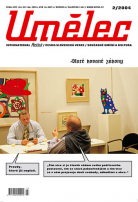

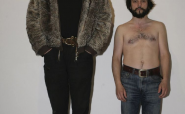
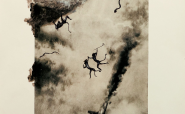
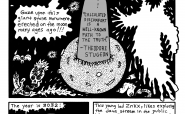
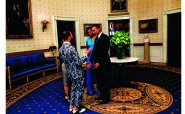
Comments
There are currently no comments.Add new comment